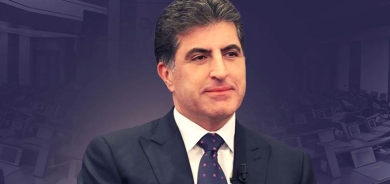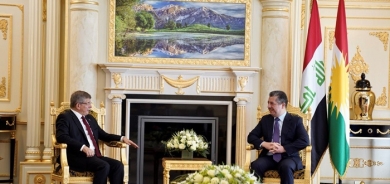Mubarak trial adjourned, lawyer says civilian court cannot try ex-leader for graft

His defense lawyer Farid al-Deeb said earlier that civilian courts have no authority to hear corruption charges against Mubarak because he reverted to his former military rank when he quit.
Deeb cited a law adopted in 1979, during the presidency of Mubarak’s predecessor Anwar Sadat, which exempts senior military officers from going into retirement and stipulates that if they take up civilian posts, they regain their military rank afterwards.
“Under this law, Hosni Mubarak rejoined the armed forces (when he resigned in February 2011), keeping the rank he formerly had, which is to say that he became General Hosni Mubarak once again,” the lawyer told the court, according to AFP.
He also referred to a decree by Egypt’s ruling military council, which stipulates that “military justice alone is authorized to try cases of illicit gains by the military.”
“Consequently, the accusations directed at the former president by the prosecutor general regarding illicit gains are not admissible,” Deeb said.
Mubarak -- who is in custody detained in a military hospital where he is being treated for a heart condition -- went on trial on Aug. 3, after protesters stepped up demonstrations calling on the ruling military to try him and other former regime officials.
The prosecution has called for Egypt’s ailing former strongman to be hanged for the killing of hundreds of demonstrators during the January-February 2011 revolt that forced him out of power.
Mubarak and his two sons, Alaa and Gamal, are also being tried on separate charges of corruption.
The last hearing is set for Feb. 16.
The court is then expected to recess for deliberation after which the judge will set a date for the verdict.
Deeb enraged lawyers for the victims on Tuesday when he claimed that Mubarak supported the uprising that toppled him. He quoted from a letter Mubarak wrote to lifetime friend and Cabinet minister Ahmed Shafiq, whom he named as prime minister during the uprising, according to The Associated Press.
In that letter, Mubarak said the protesters were exercising their right to stage peaceful protests but were infiltrated by criminals and Islamists who sabotaged public property and challenged the regime’s “legitimacy.”
The head of the prosecution had argued that even if Mubarak did not directly order the killing of the protesters, he had failed in his constitutional duty to protect the people.
Deeb also chastised the prosecution for what he said was its deviation from its task when its opening statements were political rather than focused on the legal aspects of the case, The Associated Press reported.
Bringing those responsible for the killing of protesters during the Jan. 25-Feb. 11 uprising is a thorny issue in post-Mubarak Egypt. Activists believe the generals who took over from Mubarak were not serious about punishing the killers, citing the acquittal or release on bail of members of the hated police force who are linked to the killings. There have been several protests over the past week in Cairo and the city of Suez over such cases, with families of the victims accusing the ruling generals of manipulating the courts to acquit defendants in such cases.
But a former judge and deputy of the Supreme Criminal Court told AFP on Tuesday that Mubarak cannot be sentenced to death under Egyptian law.
“In accordance with Egyptian law, the death sentence is handed down in four specific cases including premeditated murder and this does not concern the former president because there is no proof,” said Ahmad Mekki.
“The penalty for murder without premeditation is 25 years in jail,” Mekki added.













